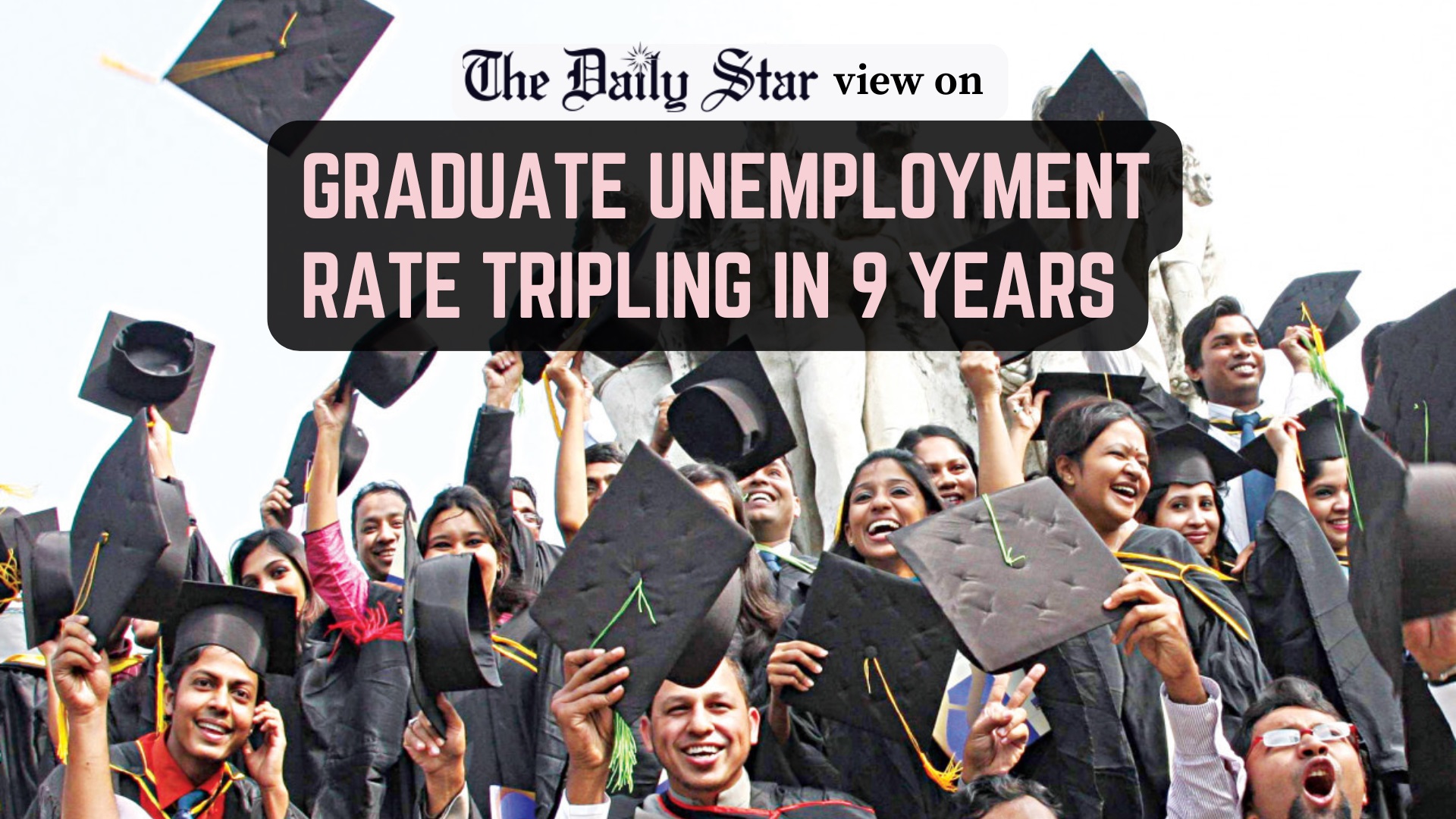A generation left waiting

That one in three university graduates in the country remained unemployed for up to two years last year is deeply worrying. It highlights one of the most concerning aspects of how our economy is functioning. These findings come from the latest Labour Force Survey conducted by the Bangladesh Bureau of Statistics, which also reveals that one in seven university graduates has been without work for one to two years, while one in six has been unemployed for more than two years.
According to the survey, there were 26.24 lakh unemployed people in 2024, including 8.85 lakh university graduates. An earlier report by this daily shows that the unemployment rate among graduates, which was already high, rose further to 13.5 percent in 2024, up from 13.11 percent the previous year—the highest among all education levels. This points to another persistent problem. The most highly educated segment of our population has consistently struggled to find employment, even in comparison to those who are less educated. This indicates a serious mismatch between the jobs available in the market and the academic training our graduates receive. It also underscores the lack of investment in the economy, which is failing to generate quality jobs that require highly skilled individuals.
Bangladesh is currently experiencing a demographic dividend, with the working-age population growing larger than the dependent population. This shift offers the country a unique opportunity to accelerate growth. Yet, instead of harnessing the energy, creativity and talents of our young people, we are squandering it. Experts warn that long-term unemployment can have a scarring effect on young people's careers. Those who begin work after a delay of one or two years are likely to remain behind for the rest of their professional lives. This would not only cause immense financial difficulties but also take an immeasurable mental toll. The government must recognise that rising unemployment, particularly among the youth, is a matter of national emergency and treat it accordingly. It should engage experts, businesses and other stakeholders to devise ways of facilitating higher investment, improving education and creating jobs at the scale and quality our young people deserve.



 For all latest news, follow The Daily Star's Google News channel.
For all latest news, follow The Daily Star's Google News channel. 

Comments